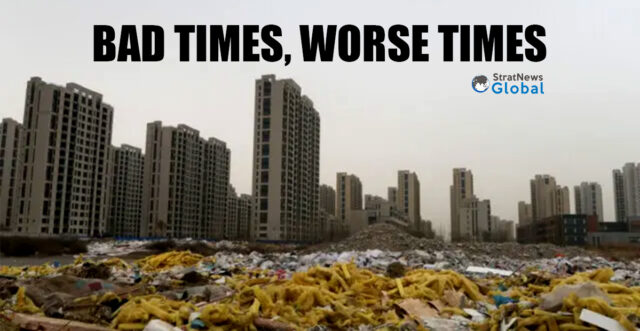In China, the economy grew much slower than expected in the second quarter, as a protracted property downturn and job insecurity knocked the wind out a fragile recovery, keeping alive expectations Beijing will need to unleash even more stimulus.
China, the world’s second-largest economy grew 4.7% in April-June, official data showed, its slowest since the first quarter of 2023 and missing a 5.1% analyst forecast in a Reuters poll. It also slowed from the previous quarter’s 5.3% expansion.
Of particular concern was the consumer sector, with retail sales growth grinding to an 18-month low as deflationary pressures forced businesses to slash prices on everything from cars to food to clothes.
“Overall, the disappointing GDP data shows that the road to hitting the 5% growth target remains challenging,” said Lynn Song, chief economist for Greater China at ING.
“A negative wealth effect from falling property and stock prices, as well as low wage growth amid various industries’ cost cutting is dragging consumption and causing a pivot from big ticket purchases toward basic ‘eat, drink and play’ theme consumption,” he added.
The years-long property crisis deepened in June as new home prices fell at the fastest pace in nine years, battering consumer confidence and constraining debt-laden local governments’ ability to generate fresh funds through land sales.
Analysts expect cutting debt and boosting confidence to be the main focus of a key economic leadership meeting in Beijing this week, although solving one of those problems may make it difficult to fix another.
The government is aiming for economic growth of around 5.0% for 2024, a target that many analysts believe is ambitious and may require more stimulus.
“The remainder of 2024 will be defined by officials’ success in arresting the property market’s fall and encouraging domestic spending,” said Harry Murphy Cruise, economist at Moody’s Analytics.
On a quarterly basis, growth came in at 0.7% from a downwardly revised 1.5% in the previous three months, the data from the National Bureau of Statistics (NBS) showed.
To counter soft domestic demand and a property crisis, China has boosted infrastructure investment and ploughed funds into high-tech manufacturing.
China’s yuan and stocks fell following the disappointing data.
With Reuters inputs
Thirty eight years in journalism, widely travelled, history buff with a preference for Old Monk Rum. Current interest/focus spans China, Technology and Trade. Recent reads: Steven Colls Directorate S and Alexander Frater's Chasing the Monsoon. Netflix/Prime video junkie. Loves animal videos on Facebook. Reluctant tweeter.





